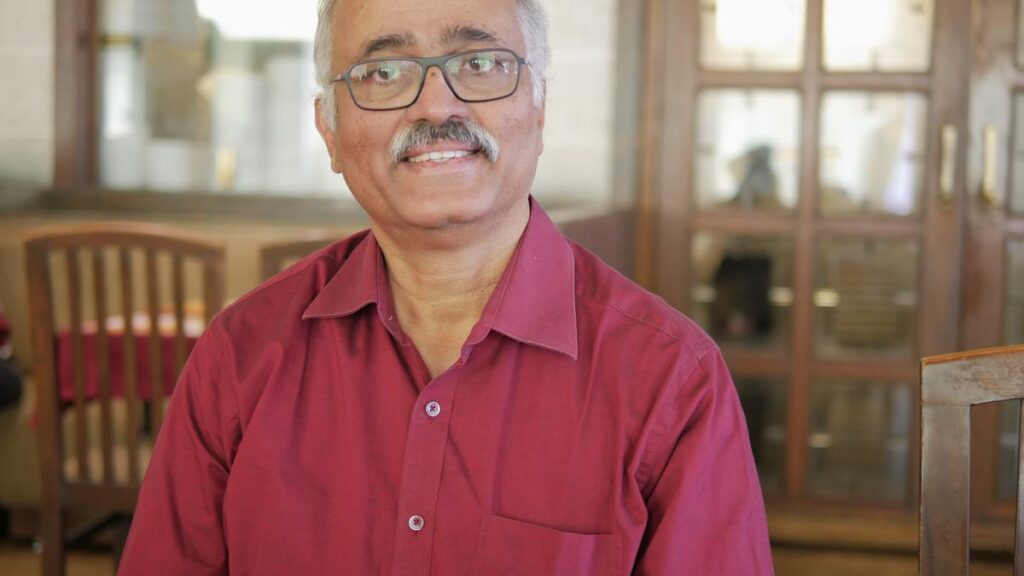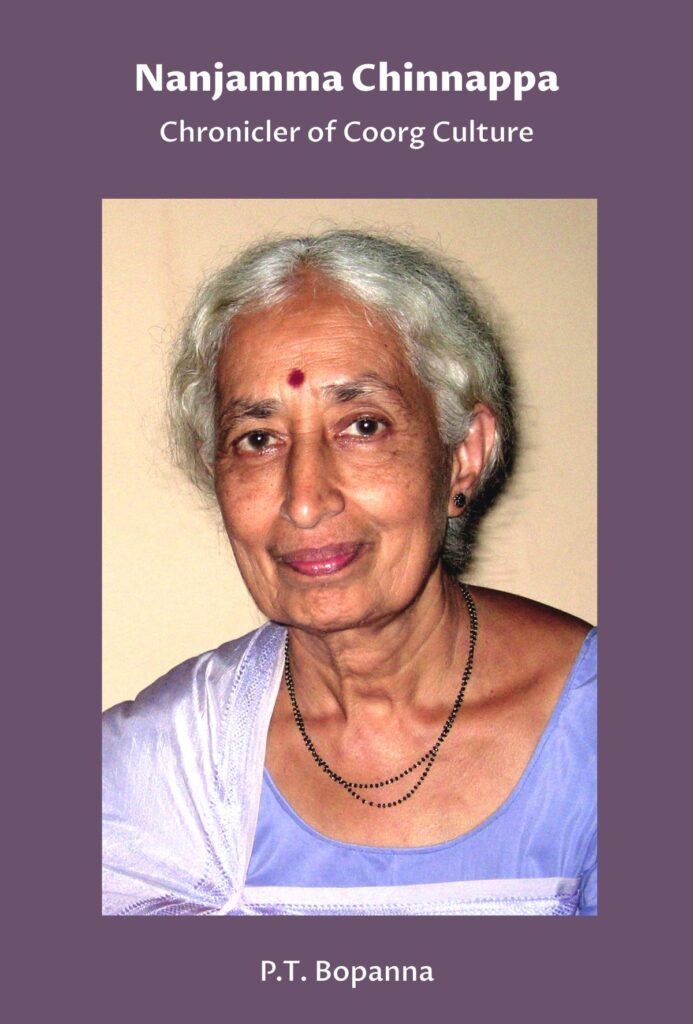P.T. Bopanna’s book Nanjamma Chinnappa – Chronicler of Coorg Culture looks at how the writer who passed away last year and her husband closely observed and recorded many aspects of the Kodava culture.

P.T. Bopanna | Photo Credit: SPECIAL ARRANGEMENT
The Pattole Palame (Silken Lore), originally compiled by the folklorist Nadikerianda Chinnappa in 1924, is considered a treasure trove of Kodava oral traditions, including songs, rituals, and stories that have been passed down through generations. Originally written in Kodava, it was the late Nanjamma Chinnappa and her late husband Boverianda Chinnappa who translated the work to English in 2003, making this treasured piece of literature accessible for Kodavas as well as others interested in oral literature around the globe.
As the celebrated author passed away in March 2024, writer and journalist P.T. Boppanna is set to release a book honouring her, titled Nanjamma Chinnappa – Chronicler of Coorg Culture. The book is a collage of works of Nanjamma that talks about her setting the image of a quintessential Kodavathi, her work on the architectural heritage of Kodagu, ancestral homes and Coorg cuisine. It is also a personal tribute looking at how the Chinnappa couple guided Bopanna’s journey as an author.
Speaking to The Hindu, Bopanna said that Nanjamma and her late husband worked as a team for various projects and were associated with some of his work too. “The Chinnappas were closely associated with my book and website projects for over 15 years,” he said.

Book on Nanjamma Chinnappa by P.T. Bopanna. | Photo Credit: SPECIAL ARRANGEMENT
The couple’s journey
“Nanjamma, a statistician of international repute, and her husband Chinnappa, an engineer, left for Cambridge, England, in 1974 where Nanjamma was a visiting fellow of Cambridge University. In 1975, they went to Canada to continue their careers and returned to India in 1995. Their first project after returning from Canada was to translate into English Pattole Palame, a book on Kodava culture, folk songs and traditions, written by their common grandfather Nadikerianda Chinnappa,” he explained.
Boppanna said that it took Nanjamma and her husband nearly eight years to complete the translation of the book which runs into 700-plus pages and was published in 2003. “The couple will be remembered mainly for their monumental book Ainmanes of Kodagu, on the traditional dwelling places of the original inhabitants of Kodagu. The Chinnappas believed that Ainmanes (house of elders/ancestral home) and their surroundings were sacred heritage sites that need to be preserved for future generations,” he said.
The Chinnappas are said to have visited close to 700 traditional and functional Ainmanes belonging to all communities in Kodagu and clicked 1,500 photographs during their field-work which took them five years. The book was published in 2014. “The couple also put together a website www.ainmanes.com that contains detailed information and photographs of each Ainmane visited, including oral narratives related to the Okka (clan) to whom the Ainmane belongs,” explained Boppanna.
A personal connect
The couple took a lot of interest in Boppanna’s own work on Kodava heritage and guided him in many ways, he said. “The Chinnappas were associated with my book and website projects since around 2007. They had gone through the manuscript of all my nine books, including my last book Round and About with P.T. Bopanna, published in 2022. They checked my books for grammatical and factual errors and offered suggestions for improving the content. Initially, I used to visit their home in Bengaluru. After they shifted to Mysuru a few years ago we exchanged emails and messages. They wrote the foreword for my book Are Kodavas (Coorgs) Hindus? They also wrote the afterword for my book My Coorg Chronicle,” he explained.
Boppanna said that one of the highlights of this book is the interview of Nanjamma by Dr. Nervanda Veena Poonacha, an eminent sociologist and women’s studies scholar. Veena had spoken to Nanjamma on the latter’s life journey. The foreword for the book has been penned by Dr. Sowmya Dechamma C.C., Professor, Centre for Comparative Literature, University of Hyderabad.
In the foreword of the book, Dechamma says that those who are even slightly familiar with the Kodavas of Kodagu and their increased awareness of Kodava language, culture and identity politics in the last three decades or so, would have definitely come across Nanjamma Chinnappa, her work and her ideas.
Context of their work
“On 31st March 2024, Nanjamma left us, leaving a void in the Kodava world. If an earlier generation of Kodava writers and intellectuals like Pandyanda Belliappa, I.M. Muthanna, B.D. Ganapathy, set a foundation for a discourse about the different identities of the Kodava, it was around a time when limitations of literacy and media restricted access to their work and discussions around them. The times in which Nanjamma and her husband and collaborator in her work, Chinnappa, began researching, writing and translating on the Kodavas, their work began appearing during a period of immense growth in media, combined with changes in the larger socio-economic scenario that had bearings on identity politics of the 1990s and thereafter. The opening up of the economy and large-scale migration of the Kodavas into urban centres along with an awareness of a distinct Kodava identity was the context in which Nanjamma and Chinnappa’s works were received,” she says in the foreword.
What Dechamma finds of immense significance in this volume is the interview of Nanjamma by Veena Poonacha that charts Nanjamma’s life and work. “Her review of works by Nanjamma and Chinnappa are equally valuable. Bringing together in one place the reflections and works by Nanjamma and Chinnappa is one of the best tributes possible to the life and work they were part of. Their effort in spreading indigenous knowledge associated with Kodavas and Kodagu needs us to take their work further,” she says.
Priced at ₹195, the book Nanjamma Chinnappa – Chronicler of Coorg Culture is published by Prism Books Pvt. Ltd,. and is available for purchase on online stores such as Amazon and Flipkart.
source: http://www.thehindu.com / The Hindu / Home> News> Cities> Bengaluru / by Yemen S / January 03rd, 2024


